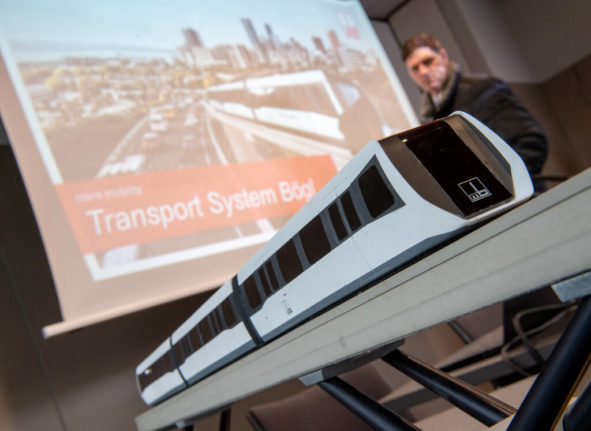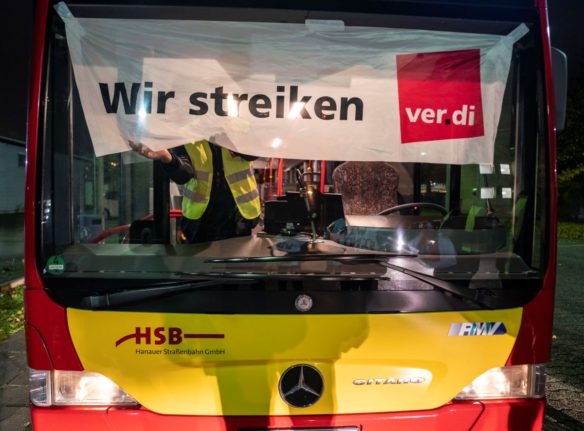A five to seven kilometre-long test track for a magnetic levitation train, known as ‘maglev’, is to be built in Germany’s capital.
The move has been agreed by the coalition government, run by the centre-right Christian Democrats (CDU) and centre-left Social Democrats.
When announcing the project, estimated to cost around €80 million, CDU parliamentary group leader Dirk Stettner did not specify where it will be built or give an exact date for the start of construction.
Stettner said a magnetic levitation train is comparatively cheap to construct compared to a metro line, for example, and can be completed much faster. The line would operate autonomously, i.e. without a driver, and be able to transport both passengers and goods.
According to the CDU it is to be financed via a special climate fund.
READ ALSO: Berlin to get its first conservative-led government in decades
First test run in the 1980s
The idea of a maglev railway in Berlin is not new. It was first trialled between 1984 and 1991, when the so-called M-Bahn ran on a test route between Gleisdreieck in Kreuzberg and Kemperplatz in Tiergarten under the direction of Berliner Verkehrsbetriebe (BVG).
However, the trial was discontinued after the fall of the Berlin Wall and the facilities were dismantled to make room for the expansion of the U2 underground line.
From the mid-1990s, there were plans drawn up for the first Transrapid monorail line in Germany. It was to connect the cities of Berlin and Hamburg in less than an hour’s travel time. However, the project was shelved in 2000 for cost reasons.
The Berlin CDU recently made a new attempt to put the idea back on the agenda. In June 2020, CDU state leader and mayor Kai Wegner presented the proposal to build a maglev train, with the idea of connecting BER airport to residential areas.
It was part of a transport concept that the CDU had adopted ahead of the 2021 election campaign.
Hamburg is also thinking about building a magnetic levitation train route, which couldrun from the Stellingen S-Bahn station to the arenas at the Volkspark, the Hamburger Abendblatt recently reported.
There have also previously been proposals for a maglev train at Munich airport.



 Please whitelist us to continue reading.
Please whitelist us to continue reading.
Member comments